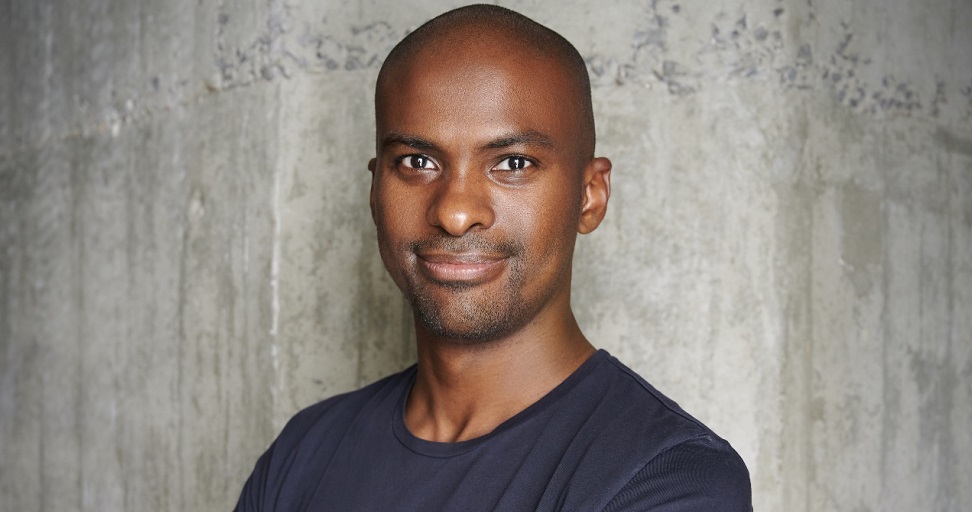From being conspicuous by its absence from the local tech startup investment scene for so long, Naspers – one of the largest technology investors in the world – is now making up for lost time in its home market of South Africa.
Naspers announced the launch of its ZAR1.4 billion (US$96 million) Foundry fund, an investment vehicle aiming to boost South Africa’s tech ecosystem by investing in and supporting high-potential tech businesses that address societal needs, in October 2018.
“We believe that developing South Africa’s early-stage tech ecosystem will have a lasting impact on the broader South African economy,” Fabian Whate, head of Naspers Foundry, told Disrupt Africa.
“We’re convinced that the best way to achieve that is to help build great local tech businesses that focus on improving people’s everyday lives. So, at Naspers Foundry, our mission is to find, fund and then help grow the next big South African tech companies.”
It has been a busy period since. So far, Naspers Foundry has invested in SweepSouth, Aerobotics, Food Supply Network, The Student Hub, WhereIsMyTransport, Ctrl and Naked Insurance, with Whate saying its investments to date total ZAR400 million (US$27 million). But who is the man heading up the fund?
Whate picked up a Bachelor of Business Science from the University of Cape Town, followed by an MBA from London Business School, and started his career as a management consultant at McKinsey and Company. There he focused primarily on strategy and operations in the energy sector and the logistics sector in South Africa, as well as the Middle East.
“I then spent several years in investment banking, first at JPMorgan and then at UBS, advising clients on mergers and acquisitions and equity capital raisings, primarily in the industrials sector in Sub-Saharan Africa,” he said.
Before joining Naspers Foundry in March 2020, he was head of co-investments at South Suez Capital for six years, responsible for the firm’s Africa private equity co-investment programme.
“I oversaw due diligence on more than 100 potential investments and closed deals across several sectors, from healthcare and education to financial services and energy, and across all key regions in Africa,” said Whate.
That expertise is now being put to good use in funding South African startups on behalf of Naspers, which Whate says is looking to support founders building high-potential and highly scalable businesses.
“Our sector focus is broadly aligned with Naspers’s core strategic segments, such as fintech and ed-tech. But in line with the group’s Ventures team’s approach, Naspers Foundry also looks to invest in other sectors that address societal needs, including agriculture and health technology,” he said.
Though Naspers Foundry focuses on South Africa, Whate said it is open to opportunities on the rest of the continent so long as they also have a substantial focus and impact in South Africa. The firm investment approach, he said, is “founder-friendly”.
“We’re an active investor offering value beyond the capital. We sit on the boards of our portfolio companies, and we enjoy working with like-minded investors,” said Whate.
“In line with the group, Naspers Foundry takes a long-term view. Our aim is to back founders and their businesses over the long term to help them grow and succeed. It’s a highly collaborative approach and we actively manage our portfolio. Naspers Foundry draws on the group’s considerable experience, expertise, networks and resources, to help our portfolio companies.”
The mission, he said, is to boost the South African early-stage tech and VC ecosystem and leave a lasting impact on the broader South African economy. Whate is excited by what he is seeing.
“We have barely begun to scratch the surface. Digital transformation is nascent in South Africa and across the rest of the continent but will form a fundamental part of future economic growth and provide many untapped opportunities,” he said.
“Still, there are several challenges facing tech entrepreneurs, and in our experience, the key ones relate to funding and skills. It can be quite challenging to raise capital for a venture that is still very early in its development. This is particularly true if you’re not plugged into angel networks or lack “friends and family” who can support your startup. The good news is that this changes as the ventures develop, as there is then more funding in the market that it can access.”
Given that the ecosystem is still relatively nascent for almost all tech entrepreneurs, and for many this is their first time running or working in a high growth tech start-up, Whate said there is a lot of groundwork they haven’t covered or come to grips with.
“So generally, they haven’t yet acquired the skills and expertise required to scale-up their fledgling venture and are learning on the job,” he said.
“Fortunately, there is now a growing number of incubators aimed at addressing these funding and skills gaps. There are also other barriers, such as creating a consistent policy environment for digital entrepreneurs to flourish. There is opportunity for South Africa and the rest of the continent to do more, and we are proud to play a role in helping governments create the right environment for success. Accelerating infrastructure development and our data capability will also improve the ability to do business and improve the lives of ordinary citizens.”
Naspers is focused on all of these issues, but Whate said Foundry’s focus in the year ahead will be on portfolio management rather than too many further investments.
“The aim is to increase and formalise initiatives to help investee companies grow further and create greater value. At the same time, Naspers Foundry will continue to find new early-stage businesses to invest in – contributing to a rapidly growing South Africa tech ecosystem,” said Whate.


